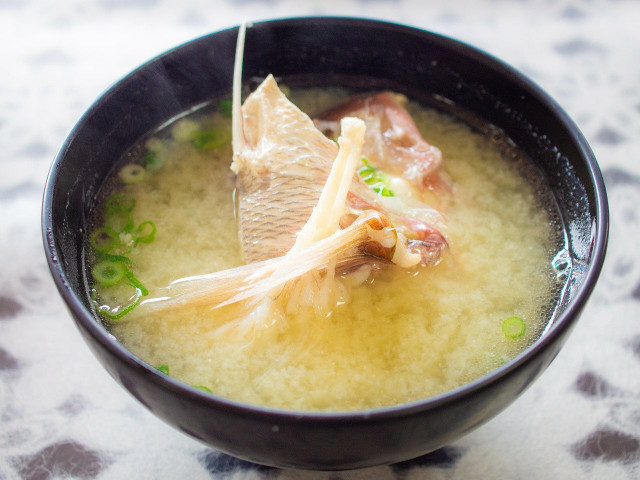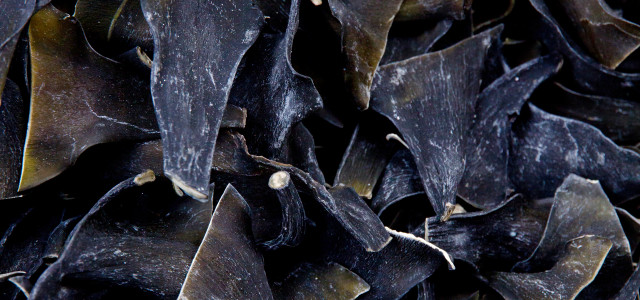Wondering what kombu is? Kombu is a type of seaweed that is popular in Japanese cuisine. It offers many nutritional benefits and is a surprisingly sustainable food source.
Although Americans may be unsure what kombu is, it has been used in Japanese, Chinese, and Icelandic cuisine for centuries. Kombu is a special type of kelp that grows in colder waters, particularly around northern Japan. It is often used to make broth, but it also has many other culinary uses, including being dried and seasoned as a crunchy snack, or boiled to make tea. Kombu is known to contain umami, one of the five basic flavors. You can read on to learn more about the benefits and drawbacks of kombu, as well as how to use it in your own cooking.
Health Benefits of Kombu

(Foto: CC0 / Pixabay / asjjuni0)
Kombu has many valuable nutritional benefits, including ones that are rarely found in plant-based sources. It contains:
- Omega-3 fatty acids: Essential for the healthy functioning of cells and hormonal regulation.
- Iodine: Necessary for thyroid functioning.
- Iron: Helps transport oxygen throughout the body.
- Vitamin A: Promotes eye health.
- Vitamin C: Boosts your immune system.
In addition to this impressive list of nutrients, kombu also has a unique ability to make beans easier to digest. This is because it contains enzymes that help to break down raffinose sugars that are found in beans. This can help alleviate gastrointestinal issues. Furthermore, regular consumption of kombu may help to lower cholesterol and regulate blood pressure.
A note:
Despite these many benefits, kombu may have a few drawbacks for individuals with particular health conditions. Because it is high in iodine, it can be dangerous for individuals prone to hyperthyroidism. Too much dietary iodine is one possible cause of this condition, in which your thyroid produces too much of a hormone that increases your metabolism, leading to symptoms such as fatigue and drastic weight loss. If you have a family history of hyperthyroidism, or if your doctor has advised against it, it may be best to forego kombu.
5 Ways to Use Kombu



(Foto: CC0 / Pixabay / likesilkto)
There are many possibilities for how you can use kombu. Here are five ideas:
- Make dashi broth: Make a veggie stock by boiling dried kombu in a pot of water for about two hours, then add miso or other condiments. To make dashi, a popular Japanese soup base, add bonito flakes.
- Add it to bean dishes: Since kombu has the ability to ease digestion, why not take full advantage of this characteristic? Try a Japanese home dish by stewing kombu and soybeans together, seasoning with some cooking sake, mirin, soy sauce, and just a dash of sugar. Or simply add kombu to the pot of water before you cook dried beans.
- Make a seaweed salad: Although it’s safe to eat raw, the seaweed tends to be quite tough and unsavory when dry. So instead, try boiling for 30 minutes, then wait until the kombu is cool before slicing and serving with a dressing of your choice.
- Use as a topping: Roast in the oven or skillet until crispy, then use as a topping for a vegan buddha bowl or vegan poke bowl.
- Brew kombu tea: Boil dried kombu with hot water to make a tea with soothing effects.
Environmental Effects of Kombu



(Foto: CC0 / Pixabay / TheOtherBen)
In addition to its many positive health effects, kombu is also surprisingly sustainable. According to a study from Manchester Metropolitan University, seaweed is an abundant and underutilized food source, and different varieties can grow around the world’s oceans with minimal impact on local ecosystems. Another study on kelp production in Chile found that cultivation produced more energy than it consumed, making it an extremely efficient crop. Although research on the environmental effects of kelp cultivation are still limited, the evidence so far suggests that it is very sustainable.
The one aspect of kombu that may affect its sustainability is its commercial packaging. Many kombu products are packaged in single-use plastics, producing a great deal of waste. If you can, you should try to buy kombu in recyclable packaging, like paper, whenever possible.
Read more:
- Konjac Flour: Uses and Regional Alternatives
- How to Make Veggie Sushi Rolls
- Vegan Fish Sauce: The No-Fish Sauce You Can Make at Home
Do you like this post?







